Featured
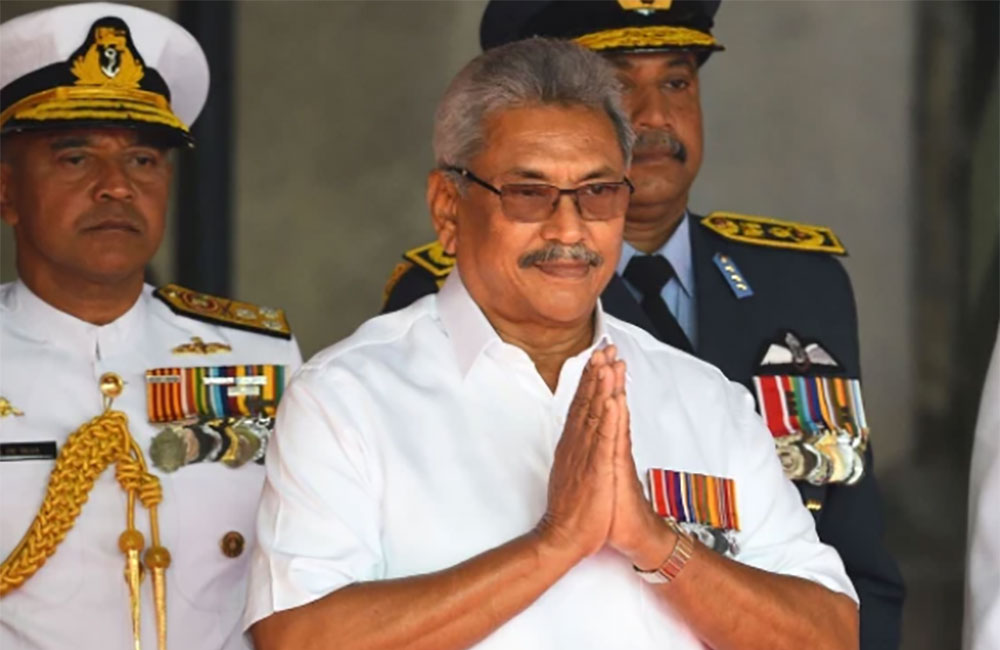
Is Sri Lanka Becoming a De Facto Junta?
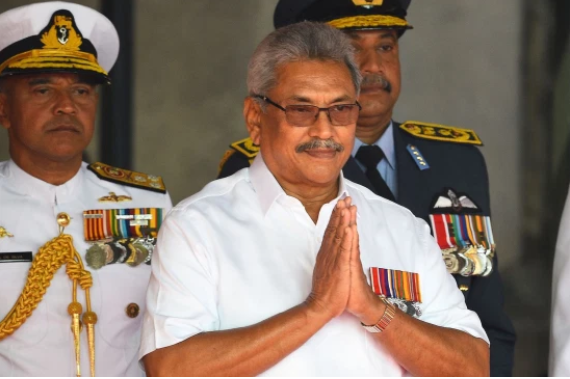 Sri Lanka's President Gotabaya Rajapaksa (center) gestures during Sri Lanka's 72nd Independence Day celebrations in Colombo on Feb. 4. ISHARA S. KODIKARA/AFP via Getty Images
Sri Lanka's President Gotabaya Rajapaksa (center) gestures during Sri Lanka's 72nd Independence Day celebrations in Colombo on Feb. 4. ISHARA S. KODIKARA/AFP via Getty Images
Rajapaksa won the election in November, taking the seat once held by his brother. In February, at his first Independence Day celebration, he declared, once again, his respect for human rights: “The responsibilities of the civilian and military establishments need to be clearly understood, and we must always remember that citizens have individual as well as collective rights.” Dressed in civilian attire, Rajapaksa nonetheless donned badges awarded to him during his long military career. Perhaps it was a hint of what was to come.
In the last several months, Rajapaksa has embarked on rapidly militarizing the state administration. He has appointed a number of retired military officers to key positions in the civil administration, and his government has moved more than 30 agencies under the remit of the defense ministry.
Moves such as his lengthy dissolution of Parliament and his shock pardon of a sergeant recently sentenced to death for killing eight civilians, including children, during the country’s civil war suggest a disdain for the legal system and constitution. With each passing day, Sri Lanka appears to be edging closer toward military totalitarianism.
Rajapaksa’s authoritarian transition should not be surprising. A brother of Mahinda Rajapaksa—who served as president from 2005 to 2015 and has since been appointed as prime minister—Gotabaya Rajapaksa is best known for defeating the separatist Tamil Tigers and bringing an end to a three-decade-long civil war in 2009. An estimated 40,000 Tamil civilians died during the final months, and as many as 100,000 civilians from both sides were killed since the start of the war in 1983. Tens of thousands more forced disappearances took place during and after the civil war, and efforts to provide justice for the victims have stalled. Earlier this year, the government withdrew altogether from a co-sponsored United Nations Human Rights Council resolution to investigate and prosecute those responsible for civil war atrocities.
There is little chance that such justice will be forthcoming. Speaking at a remembrance ceremony for fallen soldiers in Colombo on May 19, Rajapaksa vowed to protect those who fought in the civil war and said that he would not hesitate to withdraw from international organizations that target them. Already, the president appears to be signaling that security forces and police can act with impunity. In March, Rajapaksa pardoned and released Sunil Ratnayake, a former Sri Lankan army staff sergeant convicted of the brutal murder of eight Tamil civilians, including three children—one of the very few soldiers to face trial.
Rajapaksa himself has faced, and denied, repeated accusations of war crimes and atrocities. In his eight months in office, he has appointed a series of military commanders who have been accused of serious alleged international crimes during the civil war—commanders who currently hold high-level government positions. Sri Lanka is “intentionally and deliberately promoting … impunity by appointing alleged war criminals to positions of power,” the International Truth and Justice Project said in a recent investigation.
Former senior military officials have been put in charge of the Ministry of Law and Order, the Ministry of Human Resources, the Ministry of Finance, and, now, with the COVID-19 crisis, the Ministry of Health. In addition to appointing ex-military officers into civil sector positions, the government has also started handing civil administrative functions to the military. Reporting by the Tamil Guardian shows that at least 37 agencies including the police, the telecommunications regulator, and the nongovernmental organization secretariat have been wholly placed under the Ministry of Defense. Separately, the president has set up at least seven new task forces, with vague and far-reaching mandates, staffed heavily by military officials.
Recent wrangling in Parliament, meanwhile, shows the extent to which Rajapaksa is willing to bend Sri Lanka’s constitution to his will. On March 2, Rajapaksa legally (but six months ahead of schedule) dissolved Parliament, setting the election date to April 25. Since then, in response to the coronavirus crisis, he has repeatedly pushed the date back, with elections now planned for Aug. 5. The constitution mandates that Parliament meet again within three months of its dissolution, but Rajapaksa has denied requests by opposition parties urging to reconvene. The Supreme Court has also refused petitions to order Parliament be reconvened and has ignored challenges on the delayed poll date, although it has yet to explain its reasoning.
Yet reconvening Parliament is now even more urgent thanks to the coronavirus pandemic. The only legal way for the government to formalize budgets for fighting the virus is to go through the legislature. Finances are now being appropriated and disbursed by the President’s Fund, which is allocating nearly $2 billion in pledged foreign assistance to combat the coronavirus—though without parliamentary oversight there is little transparency to the process.
While Rajapaksa’s machinations over the past months may have drawn withering criticism from watchdogs and rights activists, it is unclear how this has affected his popularity among the wider public. Rajapaksa is hoping the Aug. 5 vote will seal his grip on power after he won last year’s election on a seemingly popular national security agenda. If his Sri Lanka People’s Front party can obtain a two-thirds majority, he has promised that one of his first efforts will be to repeal the 19th Amendment, which limits executive power.
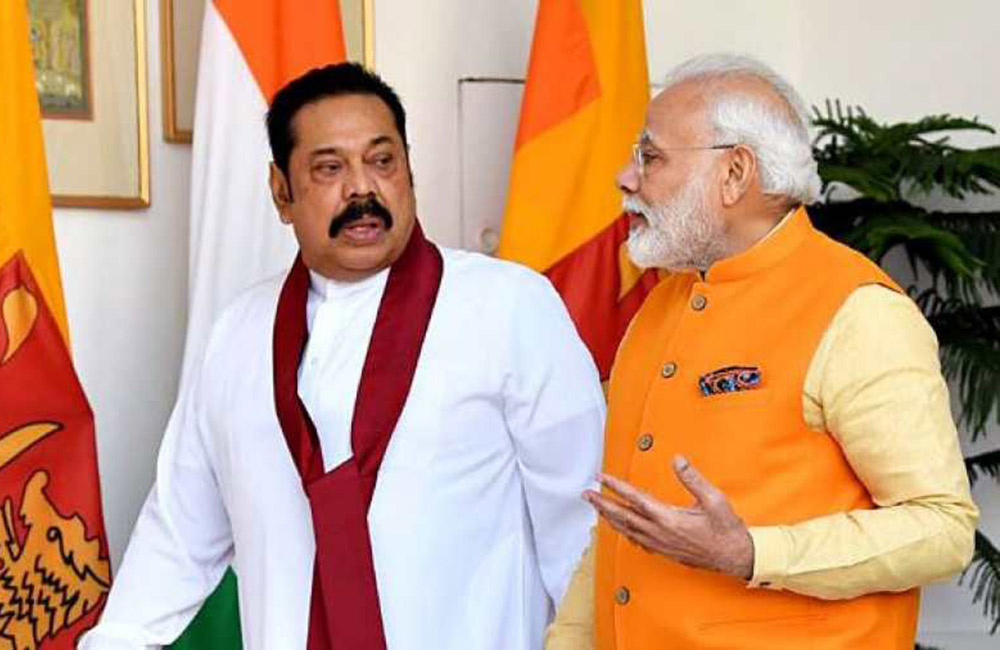
Beyond Rajapaksa's visit - are India and Sri Lanka on the same page?
By Dr. Rajeswari Pillai Rajagopalan
Sri Lankan Prime Minister Mahinda Rajapaksa just completed a five-day trip to India, making it his first foreign trip since his appointment as prime minister in late November 2019. While the trip highlighted some areas for collaboration between the two sides, it also left broader questions lingering about the future direction of ties.
By all accounts, Rajapaksa’s visit appears to have been a successful one. For instance, Mahinda touched the right cords in New Delhi even on sensitive issues by stating that developments relating to Jammu and Kashmir and Article 370 were India’s internal affairs. Prime Minister Narendra Modi, for his part, said in his press statement that he appreciated Sri Lanka’s importance not only to India but to the entire Indian Ocean Region. He added that “stability, security and prosperity in Sri Lanka” is an essential element in ushering peace and prosperity in the Indo-Pacific region.
In line with the “Neighborhood First” approach and the “Sagar” doctrine, Modi went on to say that New Delhi attaches “a special priority” to its relations with Colombo, which will no doubt be welcome. Sri Lanka also appears to be satisfied with the comfort level that exists between Modi and Rajapaksa and the pace of the relationship.
But there may be some disagreements that remain. For instance, according to reports citing diplomatic sources, Sri Lanka wants to see “cooperation and progress in SAARC,” whereas India believes that all efforts to strengthen regional cooperation should be channeled to the Bay of Bengal Initiative for Multi-Sectoral Technical and Economic Cooperation (BIMSTEC). Even though Rajapaksa is not thought to have raised the SAARC issue with Modi, he raised this point in an interview with The Hindu where he made a case for SAARC saying “we have already gone a considerable distance with building SAARC and that should be continued.”
Sri Lanka pushing the SAARC is understandable – a Sri Lankan diplomat, Esala Weerakoon, has been appointed to be the next Secretary General of the SAARC Secretariat, and Sri Lanka would like to show some progress in the association. On March 1, 2020, Weerakoon will be taking charge of SAARC from Amjad Hussain B. Sial, his Pakistani predecessor, who has held the post since 2017. Given this development, Sri Lanka is believed to have urged the Indian leadership to “at least restart the process of discussion on SAARC” but clearly it will be difficult getting India on board.
In addition to official meetings, Rajapaksa also reached out to the media and aired the Sri Lankan interest in some of the infrastructure projects on the bilateral agenda. Rajapaksa was categorical that Sri Lanka will no longer grant important projects such as the Mattala airport to other countries. Mahinda added that projects already approved by Wickremasinghe will be stopped. He also said that “his government has a firm policy on not allowing any national resources to be given to foreign control.” However, at the same time, Rajapaksa seemed upbeat about the LNG project as well as the Eastern Container Terminal in Colombo, which will see joint investment by India and Japan.
On the debt repayment issue with China, Rajapaksa defended the Chinese by saying Beijing helped Colombo in Sri Lanka’s post-war reconstruction and development efforts. He went on to note that the debt toward China is only 12 percent of the overall external debt and that the funds from China was used for developing infrastructure. He faulted the previous government for giving away strategic real estate in the Indian Ocean such as Hambantota for the debt. Defending China of course probably earned Rajapaksa some brownie points with Beijing and gave some balance to Sri Lanka’s external alignments.
To be sure, Rajapaksa also stated India is a “relation” whereas others are friends. But he was uncomfortable with concepts like the “Indo-Pacific,” which he did not use though it was used by Modi, as well as with groupings like the Quad. Colombo clearly does not want to takes sides against China.
Of course, the thorny Tamil issue was also highlighted during Rajapaksa’s visit. In fact, Modi in his press statement said, “I am confident that the Government of Sri Lanka will realize the expectations of the Tamil people for equality, justice, peace, and respect within a united Sri Lanka. For this, it will be necessary to carry forward the process of reconciliation with the implementation of the Thirteenth Amendment to the Constitution of Sri Lanka.”
However, during the media interview with the Hindu, Rajapaksa made no commitment on how the 13th amendment will be implemented, except to say no solution to the problem will happen without it being acceptable to the majority community. He elaborated on the point saying “We want to go forward, but we need to have someone to discuss, who can take responsibility for the [Tamil] areas. So the best thing is to hold elections, and then ask for their representatives to come and discuss the future with us.” Rajapaksa is hoping for a win in the upcoming parliamentary elections in April and thereafter to hold provincial elections that could pave way greater engagement with the Tamil population.
While the Rajapaksa visit has ended successfully, among the tricky issues, one that New Delhi needs to focus on is to find a balance between Sri Lanka’s interest in SAARC and the Indian preference for BIMSTEC. Given India’s larger strategic footprint across the Indo-Pacific and India’s Act East policy, BIMSTEC makes sense. But Sri Lanka is not keen. India needs to work on building support for it in other capitals in South Asia. Also, New Delhi has to be able to offer economic opportunities for these countries to make BIMSTEC attractive. Otherwise it will be seen as just empty anti-Pakistan rhetoric with no real worth for the small countries in the region. More generally, India should also be careful not to alienate the smaller countries who might not want to antagonize China.
*Dr. Rajeswari Pillai Rajagopalan is Distinguished Fellow and Head of the Nuclear and Space Policy Initiative at the Observer Research Foundation (ORF), one of India’s leading think tanks.Previously, she held stints at the National Security Council Secretariat, where she was an assistant director, and the Institute of Defence Studies and Analyses New Delhi, where she was a research office.
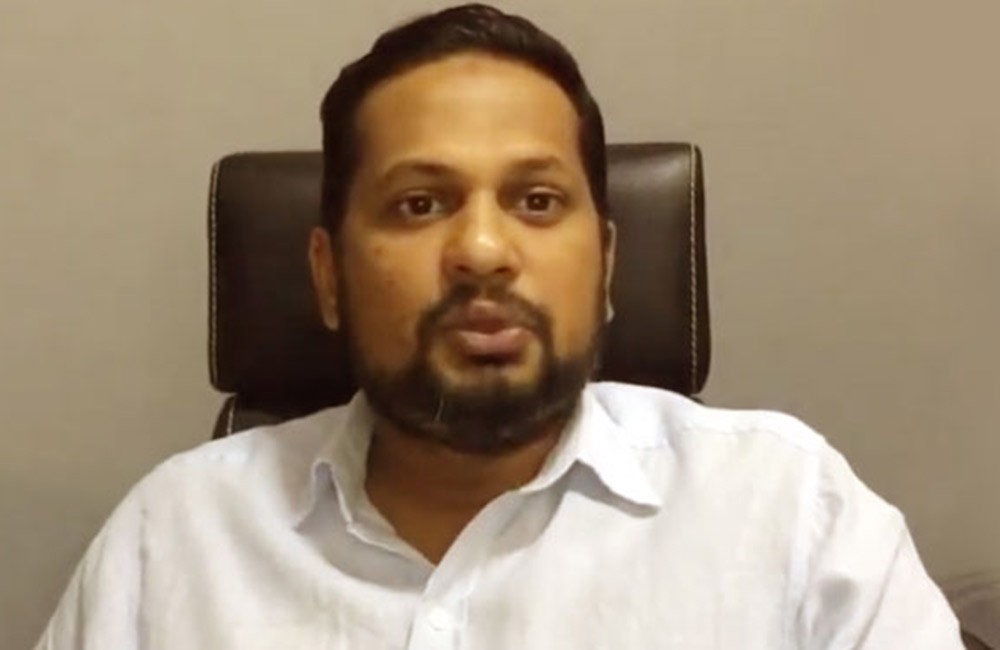
On Hejaaz Hizbullah: The latest victim of Sri Lanka’s draconian Prevention of Terrorism Act
The health officials never visited, but he did get a knock on the door from the Criminal Investigation Department (CID) of the police. They handcuffed him and placed him under arrest, without explaining why. When Hejaaz’s relatives asked if the police had an arrest warrant, they were warned not to ask any questions.
The CID officials then rummaged through his office, casting through his legal files and seizing his phone and laptop. They asked him to dial numbers on his phone and asked if he recognised them. Before leaving with Hejaaz, they took two files from his drawers – both relating to District Court cases on properties owned by Yusuf Mohamed Ibrahim, a client.
Hejaaz’s family believes he is being targeted for his professional work as a lawyer and his peaceful activism for the human rights of Sri Lanka’s embattled Muslim minority.
Hejaaz is currently serving a detention order for 90 days authorized by the Sri Lankan President, even though a detention order can only be made by the Minister of Defence and Sri Lanka has no cabinet Minister for Defence. Under the notorious Prevention of Terrorism Act (PTA), one of the main tools used to perpetrate human rights violations in Sri Lanka, any “suspect” can be placed in detention – without charge and without being produced before a judge. The detention order can be renewed for a further 90 days and continue to be renewed for up to 18 months.
The PTA has long been criticized as an abusive law that has been used to crush dissent and forcibly disappear people, along with other violations. The Sri Lankan authorities have acknowledged the inherently abusive character of the PTA but have failed to repeal it as promised. The last government proposed its own legislation to replace the law but failed to amend the draft law in order to secure sufficient support for it before being replaced themselves.
Hejaaz, who has only been able to see his lawyer and family a few times and always in the presence of the authorities, could remain under arbitrary detention until October 2021. While in detention, he will have been subjected to arbitrary deprivation of his liberty and had a myriad of his rights violated, without being able to mount an appeal in the courts. The authorities have plunged him in this predicament on the basis of nothing more than his legitimate associations with Mohamed Ibrahim, the father of the bombers who perpetrated attacks on churches in Sri Lanka over Easter 2019. The authorities have publicly stated that the reason for his arrest were his interactions with the bombers and their family.
Mohamed Ibrahim’s sons, Inshaf and Ilham, were two of the seven bombers who set off six explosions across Sri Lanka on 21 April 2019, striking three churches and three five-star hotels on Easter Sunday and killing more than 250 people. The attacks were later claimed by the armed group calling itself ‘Islamic State’, but the connection with the group remains uncertain.
Hejaaz was connected to Mohamed Ibrahim in two ways. For the past five years, he had served as his lawyer, handling legal cases related to his business. Hejaaz and Mohamed Ibrahim were also part of the “Save the Pearls” organization, a charity that supports the education of underprivileged children, hoping to lure them away from criminal activities and drug abuse. Mohamed Ibrahim served as the organization’s treasurer as part of his wider philanthropic activities, a role he later handed over to his son Ilham, one of the bombers. Ilham was asked to step down from the role in 2016 by the organization’s board, barely a few months after taking over the post. Hejaaz, a member of the board, only attended eight of its 52 meetings in a span of 5 years.
This connection is being used to justify Hejaaz’s detention. The detention order says that Hejaaz is being investigated for allegedly “aiding and abetting” the Easter Sunday bombers and for engaging in activities deemed “detrimental to the religious harmony among communities”. No credible evidence has surfaced to establish any link between Hejaaz and the 21 April 2019 bombings. According to his family, all that the authorities are acting upon is a far-fetched suspicion.
Amnesty International is extremely concerned that the case and evidence against Hejaaz may now be subject to fabrication. A new allegation has emerged that a school supported by the Save the Pearls charity was responsible for preaching “extremism” and even providing the children “weapons training”. These charges lack credibility because nearly three months since his arbitrary arrest, authorities have so far been unable to substantiate their claims with evidence. Children who were interviewed by the police are now initiating legal action on the basis that they were interviewed without the presence of a parent or guardian. Through their parents and guardians, the children have filed Fundamental Rights applications with the Supreme Court seeking an interim order for the police to produce all arrest notes, video recordings and statements that the children were made to sign.
The Colombo Fort Magistrate has stated that CID officers tried to show the children pictures of Hejaaz before asking them to identify him as a hate preacher at their school. The identification parade has since been called off after objections were raised by Hejaaz’s lawyer, however this ordeal demonstrates a frank disregard for due process and the willingness of the authorities to attempt to frame Hejaaz.
Hejaaz has been subject to an unfair character assassination in local media by the authorities in an environment where anti-Muslim sentiment is rife, and prominent Muslim professionals have been unfairly targeted in the recent past. Hejaaz’s background is far from the picture that the authorities have tried to paint. Educated at a leading Anglican boys’ school in Sri Lanka, he is a lawyer at the Supreme Court and worked as a state counsel for the Attorney General’s department. He has a master’s degree in law from University College London, for which he won a Chevening scholarship. His legal expertise includes constitutional, contract, employment, human rights and property law. Beyond his legal work, Hejaaz has been involved in interfaith and reconciliation work, including through many high-profile cases, tackling the rising tide of Islamophobia that is now a key concern for human rights groups when it comes to Sri Lanka.
The Sri Lankan government must immediately restore Hejaaz’s due process rights, including producing him before a judge, allowing him to challenge the grounds of his detention, ensuring that he has unfettered access to his family and lawyers, and, in the absence of any charges of credible evidence of a crime being committed, release him. And to stop further such travesties of justice taking place, the Sri Lankan authorities should finally repeal the abusive PTA, and provide people who have suffered because of it the justice they are owed in the form of remedies and reparations.
Thyagi Ruwanpathirana
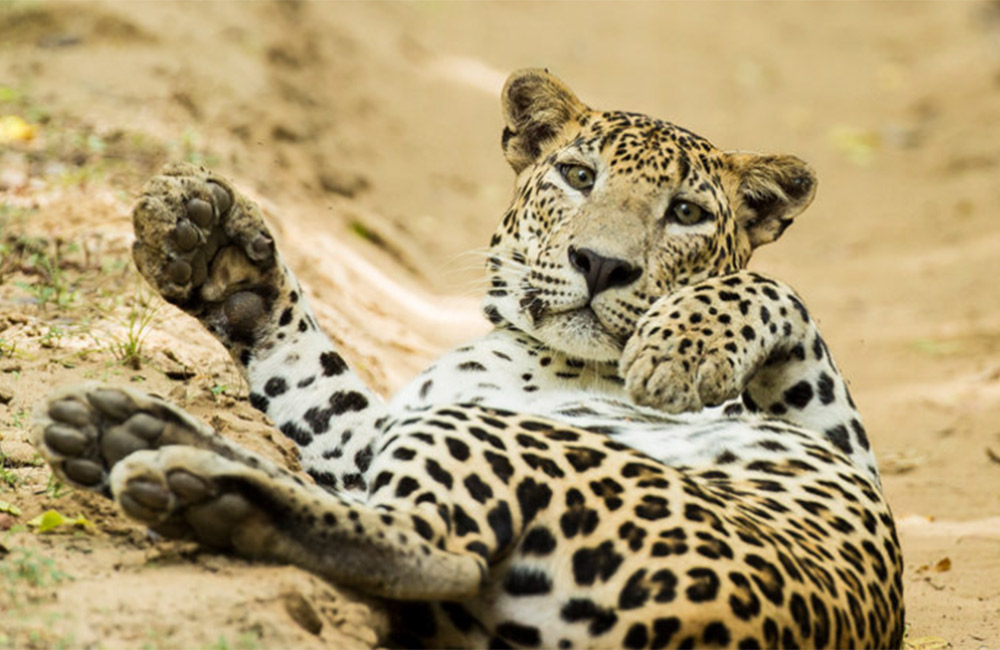
What is needed to keep Sri Lanka’s leopards roaming free?
What is needed to keep Sri Lanka’s leopards roaming free?
By Jagath Gunawardana
On Dec. 31, a fully grown male Sri Lankan leopard (Panthera pardus kotiya) was found shot and killed at the famed Uda Walawe National Park. It was also reported that the forelegs of the majestic beast had been severed and its teeth pulled out, giving rise to a fresh public debate about the protection afforded to this charismatic species and whether the current conservation efforts are sufficient.
The Sri Lankan leopard is the largest of the four wild cat species found in Sri Lanka, and the apex mammalian predator on the island. It is also a charismatic large animal that is popular among locals as well as tourists. There are some who visit Sri Lanka mainly to view leopards. It is a favourite subject of wildlife enthusiasts and widely photographed.
The leopard has been protected under the Fauna and Flora Protection Ordinance since 1964, the first wild cat to be given legal protection. The initial legal protection was partial, as it was still possible to kill a leopard by obtaining a permit to do so. This situation remained so until 1993, when an amendment to the law made the leopard a fully protected species, along with the jungle cat (Felis chaus), the other wild cat that was unprotected until that time.
The other two wild cat species in Sri Lanka, namely the fishing cat (Prionailurus viverrinus) and the rusty-spotted cat (P. rubiginosus), were given protected status in 1970. That means the fishing cat and the rusty-spotted cat had more protection under the law than the leopard from 1970 to 1993.
Legal protection
The last amendment to the Fauna and Flora Protection Ordinance in 2009 moved all four species into the newly established “strictly protected species” category. It is an offense to main, injure, harm or kill a leopard, or to keep a live animal, a dead body or any part of a body. It is also an offense to sell or expose to sell a dead body or any part or trade in live animals.
The offenses extend to the use of any implement, instrument or substance to commit any of these offenses. Furthermore, all these offenses are deemed to be cognizable offenses, that is, the offender can be arrested without a warrant. They are, in addition, deemed to be non-bailable offenses as well.
It is seen that there are quite strong legal provisions to protect the leopard in Sri Lanka. However, it is the enforcement of these provisions which is still the weakness. The Department of Wildlife Conservation (DWC) which is entrusted with the protection of all animals and plants and a large number of protected areas declared under the Fauna and Flora Protection Ordinance, is severely understaffed.
It does not have enough staff to proactively give protection to species and habitats; the staff serve mainly to protect the habitats and also to take action against offenders. The Fauna and Flora Protection Ordinance has empowered the police too, but the police are entrusted with a myriad of law-and-order issues and also lack specialized training on animals and plants.
Another vital area that needs to be revamped is the capacity of the professional staff within the DWC, and this needs more officers and more training. This includes, but is not limited to, specialized subject areas such as the identification of animals and plants by genetic testing, detection and producing expert evidence before courts during prosecution, animal forensic studies, and coordinated operations with other state institutions.
The last amendment introduced a provision that allows any officer in the DWC of the rank of ranger or above, and who has more than 10 years of experience, to become an “expert witness” in a prosecution. There is a need to provide more training in specialized areas to make the best use of this provision too.
Need for proactive measures
The conservation and the protection of the leopard needs other proactive measures as well. Even though the leopard holds such an important segment in the tourism sector, given how popular wildlife tourism is, the authorities are yet to team up with wildlife authorities to have a comprehensive plan of action to protect leopards so that tourists will still be able to see them in the future.
Such an action plan needs to be multi-dimentional, tourism being one dimension. There are leopards in both the low-country wet and dry zones, and in the hill country up to the highest elevations, with a population in Horton Plains National Park itself. Hence it is needed to consider the populations of the leopards within and outside the protected areas and to have conservation and management actions to cover both these populations.
It is said that there are no more than 1,000 leopards remaining in the wilds of Sri Lanka. Furthermore, the subspecies found in Sri Lanka is an endemic one, found nowhere else on Earth.
But a number of leopards continue to be killed each year, both intentionally and accidently, taking a toll on the already low population. This animal is included in the National Red Data List as a threatened species within Sri Lanka.
It is very clear that time is fast running out for this charismatic carnivore and therefore urgent management action is needed to save this unique population for the future.
*Jagath Gunawardana is a Colombo-based environmental lawyer, lecturer and naturalist.
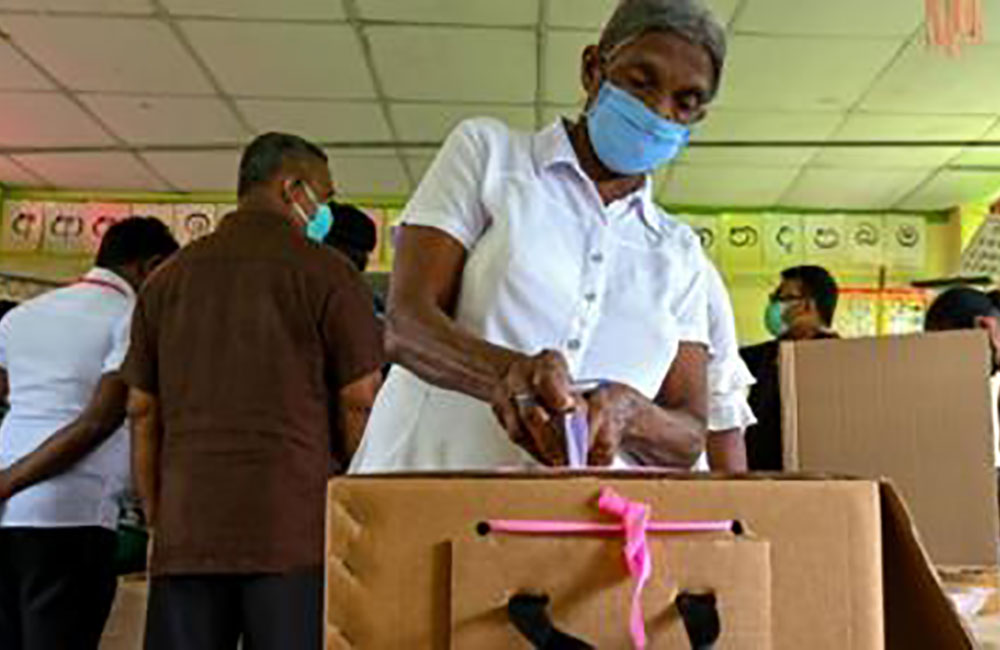
Faking “normalcy” and voting Corona to parliament
There are reasons for the more aware citizens to raise concerns over government’s recent shift in approach in controlling COVID-19. Perceptions that top bureaucrats responsible for the health sector are not independently so, also contribute to serious concerns. However much they brag about their independence in service, their work seem more aligned to the election agenda of the governing party. On July 03 when an individual in Jinthupitiya, Colombo 13 who was in self quarantine was identified as COVID-19 positive, DG Health Services Dr. Anil Jasinghe told media he would not be a “virus carrier” as he had completed the 14 day quarantine and was thereafter in self quarantine. But then, if Dr. Jasinghe was that certain the affected person would not be a “virus carrier” why was taxpayer money wasted on 154 persons to quarantine them for 14 days? This sounds no different to the Coast Conservation officials who said they expect sand from Ratmalana dumped to the sea from Mt.Lavinia would collect in Wellawatte.
Much different to them, the head of the taskforce responsible for prevention of COVID-19, army Commander Lt. General Shavendra Silva’s media briefing on 10 July on the new surge in COVID-19 positive numbers at Kandakadu and Senapura drug rehabilitation camps was quite objective. He clearly said, apart from the already identified 57, there were 196 affected cases reported in the morning, totalling 253. He had also told they were awaiting reports on 375 PCR tests already done and they may have positive cases, further increasing numbers. His assumption he had told media is that this outbreak could be from visits allowed for 116 of their relatives, or from those drug addicts the Courts decided to transfer, in the past few days.
He had also told media all precautionary steps have been taken to control any further spread. Yet he had warned, as there are expatriates also flown in, there can be reports of new cases tested positive and therefore community spreads cannot be totally ruled out. People should therefore take precautionary measures, he had warned.
That in fact is the reality. On the side of the people, COVID-19 has become a threat in the waning. Face masks are often forgotten in public. Social distancing seems no more relevant. Such social neglect does not come without change of priorities in government approach to COVID-19 prevention. The government removed most precautionary measures and restrictions imposed for COVID-19 prevention, in order to create social space for electioneering. Inter district travel that was in place, was removed. With very short notice, all island curfew was completely removed. Social distancing was gradually left aside and private buses came on the roads, reopening of schools in stages began, 500 students in a lot was allowed for private tuition, restaurants and hotels were allowed usual businesses and the situation at ground level seemed so much like that of the 2019 presidential elections.
With that, restrictions and conditions for election campaigning was only applicable to opposition campaigns and not for candidates of the government party. This open discrimination made COVID-19 control look irrelevant and the danger a bygone issue. These campaigns with media coverage make people feel the situation is “normal” once again creating a social psyche, COVID-19 is no more an issue in life.
Although election campaigns don’t have huge hoardings, massive public rallies, large and open public campaigns with huge money spent, there is public debate about who should be voted. With the election date nearing and an election mood slowly giving into collective engagements, social dialogue leaves COVID-19 unimportant and has lost attention in society.
In such context, increase in positive COVID-19 numbers have also lost notice in society. The 253 cases from Kandakadu and Senapura rehabilitation camps the Army Commander announced on 10 July morning reached an all time high of 300 in a day by evening. The Jinthupitiya case, Welikada remand prison case with another addition on 10 July and a Kandakadu rehabilitation camp Counsellor from Kottaramulla, Chilaw district tested positive with another Counsellor from Habaraduwa, Galle district tested positive too add to a growing possibility of community spread. Their number of contacts, the numbers subjected to PCR tests and possible positive numbers out of them are yet unknown. Meanwhile in Hambantota district, 15 from Ambalantota and 22 officers and prisoners from Angunakola prison and another 15 from Pelmadulla in Ratnapura district have been sent for quarantine. This gives an idea of the new spread that is creeping around.
There is no clear indication how Kandakadu and Senapura rehabilitation camps came to be COVID-19 clusters. If as the Army Commander suspects, it was with relatives who visited inmates, then not only the 116 visitors but their close contacts in hundreds would have to be traced. If the outbreak was due to drug addicts transferred to those camps on Court orders, again their close contacts can be very many. It could also be both sources that infected the camp inmates.
Tracing their contacts to the last and testing them for COVID-19 would mean PCR tests in thousands, not in hundreds. The extent of the possible spread cannot be otherwise traced, assessed and controlled. Till then we would be speaking about numbers in a social context that assumes everything is “normal” once again and is dominated by an election mentality. Maintaining and nurturing such social freedom till elections are over, may lead to a second wave. This second wave can be more severe than the first, with all indications of the spread now taking hold in the community.
But there is still the possibility of restricting it within controllable limits. That first needs re-imposing of an all island curfew from 09 in the night till 05 in the morning next day. Curfew will impose some restrictions in social life. But would not seriously effect election campaigns. Election campaign meetings, pocket meetings by candidates and collective election interventions should be totally banned. All schools should remain closed at least till elections are over. Private tuition classes should also be banned. Also, all detailed information about identified positive cases, their contacts and the number of PCR tests done should be made public. That allows others to avoid contact with suspected cases.
In summing up this whole essay let me say, COVID-19 prevention measures should be immediately slammed, and election campaigning should be allowed only within the space that would remain. Priority should be in electing a parliament with COVID-19 completely controlled and not one in a society threatened by a second wave that would be disastrous to everyone. Thus it is the responsibility of political parties and candidates in how they would design their election campaign within the space that COVID-19 prevention measures allow. If they cannot be innovative in meeting that challenge, they prove they are not competent in addressing the serious crisis the whole country is already in raising the question, “why elect them at all?
Kusal Perera
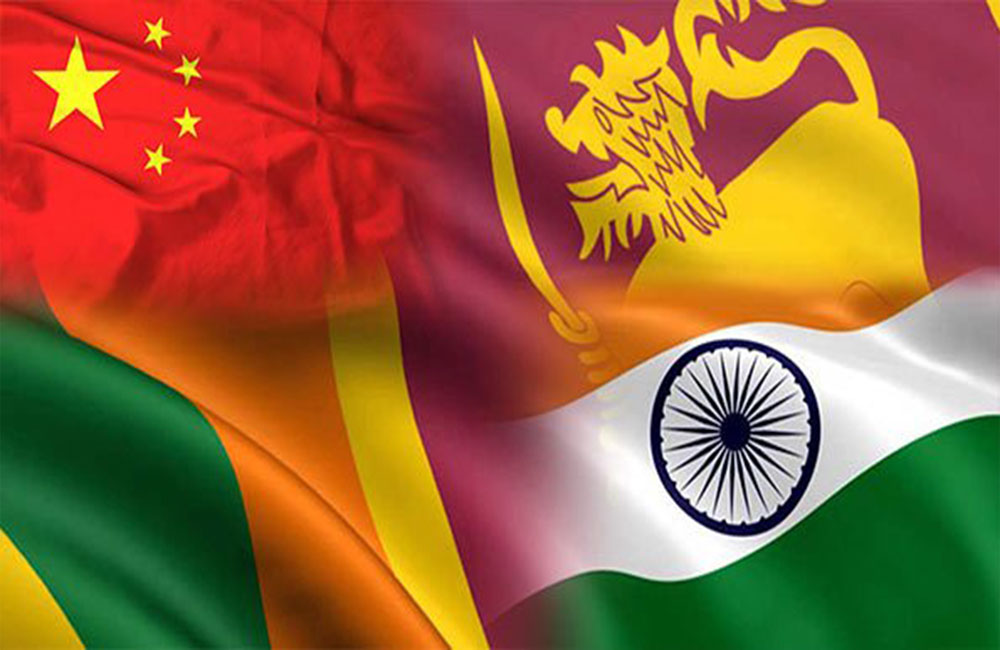
What Colombo-Beijing axis means to Sri Lanka
While the ongoing attempt by the US to renegotiate the Status of Forces Agreement (SOFA) has run into fierce opposition, the gift of a 2,300-tonne warship by Beijing to Colombo in early July this year has been warmly welcomed by Sri Lanka’s authorities. The commander of the Sri Lankan Navy, Vice Admiral Piyal De Silva, thanked China for the frigate and proclaimed it to be a sign of the good friendship between the two countries. According to China’s mission in Colombo, 110 Sri Lankan Navy personnel spent two months in Shanghai being trained how to operate the ship.
Later the same month, Reuters reported that Chinese President Xi Jinping offered Sri Lanka a fresh grant of 2 billion yuan ($295 million), a clear indication that Beijing is looking to further expand its influence over Colombo. Surprisingly, this has not caused any outcry, although it is well known that Beijing, through an adroit combination of grants, bribes and “debt trap diplomacy,” has successfully encroached on Sri Lanka’s sovereignty. Instead, Sri Lanka’s nationalists, (a eupemism that best describes Sinhala nationalists) consider themselves indebted to China for helping crush the 30-year old Tamil rebellion. It is a matter of fact that if not for the help of the Chinese, who, in addition to their military aid, gave the Sri Lankan government diplomatic cover at the UN Security Council, Colombo could not have won the long-running civil war.
As a consequence, Sri Lanka’s nationalists are grateful to China for its enormous help in bringing to an end what was widely regarded as an “unwinnable war,” and are unable to regard Chinese actions as inimical to Sri Lanka’s interests or impinge on Sri Lanka’s sovereignty. This, despite Sri Lanka having been forced to lease out Hambantota port in the south for a period of 99 years (to be managed and operated by Chinese state-owned China Merchants Ports Holdings) and China openly seeking to derail the Sri Lankan government’s agreement with Japan and India for the development of the Easter Container Terminal (ECT).
Instead, Sri Lanka’s nationalists are inclined to look upon Washington’s outright grant of $480 million over a five -year period in conjunction with the renegotiation of the SOFA agreement and negotiations for the Acquisition and Cross Servicing Agreement (ACSA) as the country becoming “one of the territories of the USA, if not its 51st State.” Unfortunately, such hysterical and outrageous hyperbole appear to be typical of Sri Lanka’s nationalists.
The explanation for this apparent irrational loyalty to China is attributable to the well-established premise that Sri Lanka’s Sinhala nationalists are a “majority with a minority complex.” As such they entertain the fear that the Tamils of Sri Lanka, with the support of the huge Tamil population across the Palk Straits in the southern Indian state of Tamil Nadu, may prove to be a threat to their own independence or even cause the Tamil homeland in the northeast to be annexed by India.
Hence, the blind, unthinking loyalty to China by Sri Lankan nationalists in whose view China was not only the only country that had helped them beat Sri Lanka’s Tamils into submission, but also the country that has the military and diplomatic might to counter India should it prove to be a threat.
Sinhala nationalists, that is, the overwhelming majority within the Sinhala population, fear India because they believe that on the long term, New Delhi, either due to pressure from the southern Indian state of Tamil Nadu, which is angered by Sri Lanka’s ongoing mistreatment of their vanquished fellow Tamils, or to gain access to Sri Lanka’s port of Trincomalee, which New Delhi is known to covet, may directly intervene.
The Colombo-Beijing axis is primarily driven by Sri Lanka’s nationalists to counter their real or imagined threat from New Delhi. The opposition to Washington is a corollary, because Washington’s policy calls for a robust approach to break up the Colombo-Beijing axis and improve its own influence over Colombo.
 Ana Pararajasingham
Ana Pararajasingham
Ana Pararajasingham is an independent researcher focusing on political developments in the South Asian region with particular emphasis on geopolitical developments impacting Sri Lanka and India. He was director of programs with the Switzerland-based Centre for Just Peace and Democracy between 2007 and 2009.
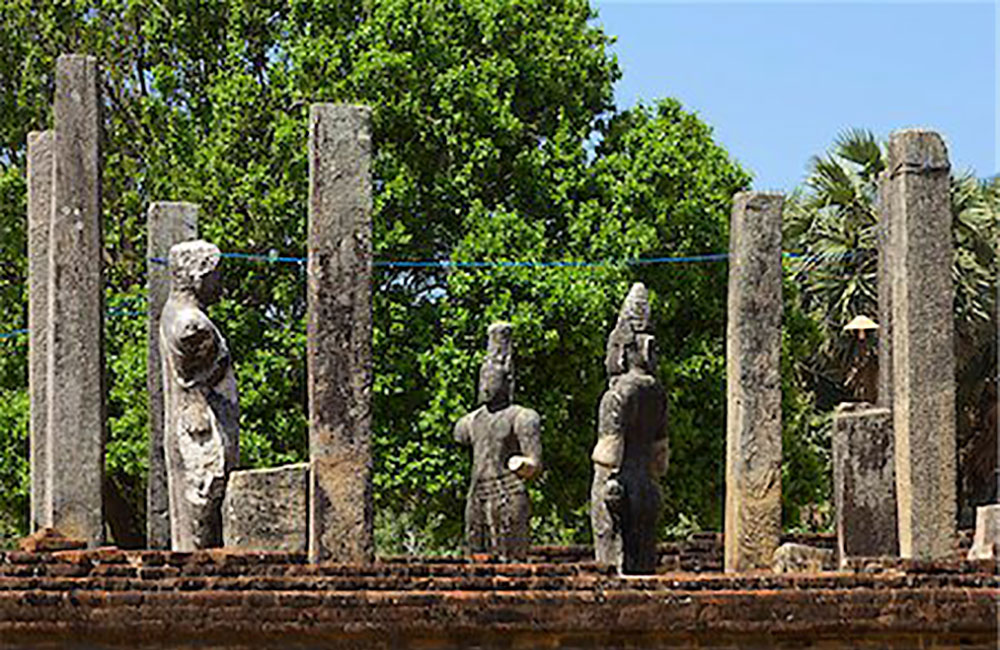
Sri Lanka: Weaponizing Archaeology?
By a Gazette notification, the Sri Lankan government appointed a Presidential Task Force for Archaeological Heritage Management in the Eastern Province on June 4, 2020. The Task Force has been tasked to identify sites with archaeological importance, identify and implement appropriate programs, identify land that should be allocated for cultural promotion, and preserve the cultural value of identified sites. Of significance is that the force has been established exclusively for the Eastern Province, where Tamil and Muslim communities share the space almost equally.
The appointment of an “all Sinhala” task force has already evoked a sense of fear among my Tamil friends. According to Tamil media, the Tamil National Alliance (TNA) has condemned the move as a step towards Sinhalesization and Buddisization of Sri Lanka. For me, it evoked memories of the end of the war. So, I wrote on my twitter feed, “In the war against LTTE, the government forces took control of the Eastern Province first. Then they focused the energy on the Northern Province, which led to the total military victory.” I guess I am also nervous. I decided to share an excerpt connected to the archeology department from my recent (2019) book, Post-war Dilemmas of Sri Lanka: Democracy and Reconciliation (published in London and New York by the Routledge, pp. 128-9).
The excerpt
‘What could be called the structural adjustment programs, where nationalist groups and institutions of the state collaborate informally, are aimed at limiting the presence and influence of Muslims in areas that are considered “sacred” by the Sinhala-Buddhists. One of the often-leveled arguments was that the Muslim structures including mosques, shops, and other religious symbols in the “sacred” territories are “illegal” (Wickramasinghe 2014, 400). The nationalists, at times, violently applied constant pressure on the state and the relevant institutions of the state to remove these illegal structures from the Buddhist sites. Consequently, many institutions, including ministers of the government, the Archaeology Department, the police, the Central Cultural Fund, and the Urban Development Authority (UDA), and so on, wittingly and/or unwittingly collaborated with nationalist groups to restrict the Muslim expansion and, in some cases, to remove their religious and commercial structures (Seoighe 2017). This pattern could be seen in places such as Dambulla, Balangoda, Anuradhapura, Deepavapi, and Devanagala.
On the premise that the Masjidul Khaira mosque in Dambulla was illegally built on a sacred Buddhist site, a roughly 200 men-strong mob demanded the removal of the structure and attacked it in 2012. In response, Prime Minister D.M. Jayaratne ordered the “relocation” of the mosque and the UDA asked that about 50 houses and 20 shops move out of the “sacred area.” Condemning the moves of the government, the Center for Policy Alternatives (2013) pointed out that the involvement of the UDA in this issue favoring the nationalist position “raises concerns that there is a concerted effort both by radical Sinhalese and the Government to evict Muslim families from the center of specific towns and cities” (59).
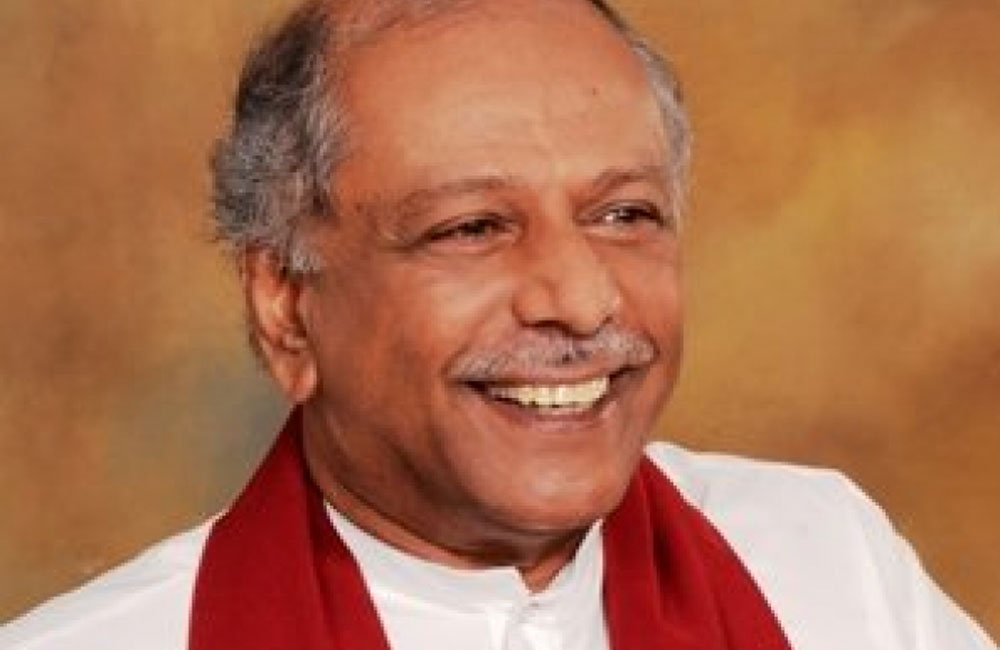
Why not Dinesh Gunewardena?
Sri Lanka won the cricket World Cup once, but never again. We started down the slippery slope almost the morning after we had reached the zenith of achievement. That was because we dismantled the winning combination which included Ana Punchihewa and Davnell Whatmore. The most crucial mistake we made was in the succession. The captaincy should have automatically devolved upon the vice-captain, who was one of the world’s best batsmen at the time; perhaps THE best. That was Aravinda de Silva. He was allowed to captain only sporadically.
The same mistake is being made by the Sri Lankan Opposition. In a situation in which the captain and commander-in chief of the national opposition, ex-President Mahinda Rajapaksa, cannot run for Presidential office, the obvious front runner in the choice of candidacy should be the vice-captain. There can be no question as to who the vice-captain is because the country’s citizenry sees it every night on TV news, whenever there is footage from the center of the nation’s political life, the parliament. And that man, that vice-captain, is Dinesh Gunawardena.
Now the obvious question arises as to why, though I had been mentioning Dinesh’s name for years, I had suggested Gotabhaya as candidate at one time—and why I no longer do so. I did not push early on for Dinesh though I kept dropping his name, because I remembered what another political family had done to a worthy successor who was outside the family. My father, Mervyn de Silva, was perceived as even closer to the SLFP’s Deputy Leader and the country’s Deputy Prime Minister Maithripala Senanayaka, than he was to Madam Sirimavo Bandaranaike. I therefore had a ringside seat watching the rise and fall of Maithripala, a left of center populist who had progressive views on foreign policy and was supported by the Left within the coalition. When Mrs. Bandaranaike’s civic rights had been removed and she was unable to contest the Presidential election of 1982, Maithripala, if given the SLFP candidacy, might have won. Instead he was overlooked, and double-crossed by his political ally Anura Bandaranaike. Hector Kobbekaduwa, a distant cousin of the Bandaranaikes, was chosen instead, but he too was backstabbed by the Bandaranaikes as was his ally and Mrs. Bandaranaike’s son-in-law Vijaya Kumaratunga himself.
Having watched the fate of both Maithripala Senanayaka and Hector Kobbekaduwa, I did not want the same fate possibly visited upon Dinesh Gunawardena. I was counseled by veteran observers that the Rajapaksas would only support one of their own, and I thought Gotabhaya would be a good choice, provided he could be persuaded to go with his best self rather than his ‘Tea Party movement’ type Alt-Right constituency at the core of which are irrational ex-military colleagues and militant monks, both verging on neo-fascism.
Even more simply, while I had advanced the slogan of ‘MR Plus’ for the Opposition Presidential candidacy, in which GR would be the Plus, the GR camp (NOT GR himself) had for many years planned the reverse: they thought of MR as the ‘Plus’ in a ‘GR Plus’ formula! Their project was not MR-centric, it was GR–centric. They felt that MR’s time had come and gone and he was to be merely a stepping stone for a leadership model and policy agenda which they felt was more advanced and superior to MR, because it was less populist, more nationalist, and ex-military driven. They felt the ex-military vanguard was superior to an experienced political vanguard. They felt that MR ran a ‘soft state’ while they wanted the dominance of a hardened state machine.
Military–corporate complex
In his historic valedictory address to the American nation, retiring US President Dwight D. Eisenhower, WW II military hero, warned the citizenry about the growing power of what he termed ‘the military-industrial complex’. If the Sinhala Alt-Right takes over, we shall be dominated by a ‘military–corporate complex’ or a ‘military-big business-managerial-monk complex’, which will replace the ‘Govi-Kamkaru’ component of the ‘Pancha Maha Balavegaya’.
I engaged constructively, tried to reason and persuade, and failed. Veteran leftists Vasudeva Nanayakkara and DEW Gunasekara (especially the former) were right all along, but I think my effort was worth it. As the Apostle of Cuban Independence, Jose Marti said: “I have lived in the belly of the beast and I know its entrails, and my sling is that of David.”
Now it is time to speak plainly. I firmly believe that there are two excellent, risk-free choices of candidate for the Opposition. One is, as Vasudeva has said, Chamal Rajapaksa. The other is Dinesh Gunawardena. Dinesh can probably get support from an improbably diverse array of leading players, namely two ex-Presidents and the serving one: Mahinda, Maithri, and perhaps even Chandrika.
After the shock defeat of 8 January 2015, opposition strategy pivoted on Dinesh Gunawardena. I recall a discussion 48 hours later at Speaker Chamal Rajapaksa’s residence in which Mahinda Rajapaksa correctly concluded: ‘Dan Dinesh thamai inne!’ best translated as ‘now it is up to Dinesh’ or ‘now it is Dinesh we have to rely on’. The Mayor of Matale Hilmy Mohamed was witness.
Dinesh played his role as Opposition Parliamentary leader and Mahinda’s deputy extremely well for years in Parliament under very difficult circumstances in which the numbers fluctuated, the official SLFP joined the Government and the real Opposition did not (does not) have the status of the Opposition. He has the respect of both the Government benches and the Opposition. When he speaks he does so with authority. His television performances, of which there are too few, are superbly skillful. In or out of Parliament, none dare trifle with him. He combines a steely temperament with civility, mischievous charm and a warm smile.
If the Opposition is looking for a presidential candidate who would be an effective yet safe proxy for Mahinda Rajapaksa, how can there be anyone better than Dinesh, who has played that very role splendidly since 2015?
Dinesh is a veteran of Opposition politics since the toughest days of the 1980s, coming into Parliament in the second term of a hegemonic administration, and after the Referendum of 1982 when the regime had hardened. He has served in Cabinet under two Presidents. His experience ranges from trade unionism to Parliament, from the Parliamentary to the extra-parliamentary, from Opposition to Government. With that richness of experience he is surpassed only by Mahinda and Vasudeva.
In a period of history when the tides are against the neoliberal elitist establishment the world over and running heavily in favor of change under the auspices of populism and nationalism, Dinesh is a populist nationalist with a socialist orientation. At a time when progressive, left of center populism is to be vastly preferred to the angry ultra-nationalism of the Alt-Right, Dinesh is a progressive nationalist and patriotic populist who has consistently been left of center.
Not only has Dinesh the benefit of learning from his father, Philip Gunawardena and being raised in a great political family that included his militant uncle Robert and aunt Vivienne (a socialist icon), he has also worked with Madam Sirimavo Bandaranaike as an ally and fought against President Jayewardene in the 1980s, engaged sympathetically with the JVP in the 1980s, served in the cabinets of Presidents Chandrika and Mahinda in the last 20 years, and been a close comrade and parliamentary colleague of Mahinda’s for decades. Now that is what I call a wealth of political experience, in both senses of political combat and political engagement.
Constitutional reform
The balanced, mature style of Dinesh’s politics is best evidenced in his stance on Constitutional reform. He has been a sharp critic of the elitist establishment’s efforts to short circuit Parliament, as well as to perforate the unitary framework by means of slippery terminological deceit. It is a pity that the TV news failed to catch his strong rebuttal of Sumanthiran’s and Jayamapthy Wickremaratne’s responses to their critics, after their strong arm tactics were exposed within the Steering Committee. However, Dinesh has also engaged with President Sirisena, Prime Minister Wickremesinghe (his former classmate at Royal College) and Speaker Karu Jayasuriya, in all parliamentary matters, including in the Constitutional Assembly and Steering Committee processes. While insisting on correct parliamentary and Constitutional procedure and practices, he has also insisted that the Opposition engage in the Constitutional reform conversation by presenting a 14 point policy paper. Dinesh believes in drawing broad parameters, red lines—not in rejecting reform or foreclosing the space for its consideration and deliberation.
For his policy of constructive engagement, Dinesh has come under heavy pressure and public criticism by the ultranationalist Far Right (e.g. Dr. Gunadasa Amarasekara, Dr. Wasantha Bandara, Ven. Elle Gunawansa), which insisted that the JO disengage from and boycott the process itself. When this ideology threatened to seep into the JO itself, it was Dinesh who beat it back, with Mahinda’s overarching support, since the latter believed in Parliamentary participation. If not for Dinesh’s excellent parliamentary tactics in a difficult and complex situation for the Opposition, the hegemony of the neoliberal establishment would have been entrenched.
Throughout, Mahinda has been able to rely on Dinesh as his right-hand man in the parliamentary battle since 2015; the one who manages the JO forces in Parliament and confronts the Government every day, while being at MR’s side or functioning as his representative at all important meetings with the President, the PM and the Speaker.
Dinesh Gunawardena has a shrewd understanding of international affairs and as a Realist he is a far safer bet than the Alt-Right GR bloc which criticises a solution to the Tamil question based upon ‘bala bedeema’ i.e. power-sharing, and refuses even to guarantee that the existing 13th Amendment will be respected. The Alt-Right bloc questions the very existence of a Tamil political question and a legitimate Tamil political identity i.e. a Tamil collective identity. Their ideology seeks to put the clock back, not merely to pre-1987 and the Indo-Lanka accord but to 1957 and the Bandaranaike-Chelvanayakam Pact which was the first recognition of the political nature of the Tamil issue and the need for a political solution based on territorial autonomy and devolution/sharing of power between center and periphery.
The ideologues of this Alt Right camp regard any political reform based on territorial autonomy, indeed the very recognition of the need for territorial-based devolution/autonomy itself, to be separatist! If it assumes state power in Sri Lanka, the Sri Lankan state will face geopolitical consequences of a devastating and terminally destructive nature. By contrast, Dinesh Gunawardena as a presidential candidate and MR as powerful Prime Minister or Prime Ministerial candidate will be able to balance the Sinhala and Tamil nationalist concerns, with Sri Lankan national interests as a whole.
‘Smart Patriot’
Dinesh is a perfectly bilingual ex-Royalist who has a Colombo elite constituency just as he has a broad Sinhala Buddhist base. While a Sinhala nationalist, he is a pragmatist who knows that India must be kept on board and that the principle of devolution cannot be renounced, and the Provincial Council system cannot be dismantled. Dinesh Gunawardena is a ‘Smart Patriot’.
On the Geneva front, Dinesh has been a fiery critic of the 2015 Resolution while supporting the deployment in our defense, of the report by Sir Desmond de Silva. In this he was opposed not only by the neoliberals but also by the Alt-Right including one or two foreign policy/Geneva hawks within the Opposition.
Dinesh has been in the political struggle for longer and more continuously than any of the Rajapaksa brothers apart from Mahinda. With Dinesh’s wealth of experience in the political movement, he could fit into the role of the candidate for the highest political office in the land less controversially than anyone else. As the Parliamentary leader of the JO who has led the struggle day in day out in parliament, it is unthinkable, even inappropriate , that the JO Parliamentary Group should turn to anyone but their own parliamentary leader as the presidential candidate in a situation that Mahinda cannot contest.
Perhaps above all, society, civilian governance and our deep-rooted democratic system are safe with Dinesh. He has been a thoroughgoing democrat, combining principle with prudence, wedded to the parliamentary tradition for decades while being unafraid to brave bullets while leading demonstrations on national and democratic issues (one recalls the breaking of the ban on May Day celebrations in 1987, the demonstration at Abhayaramaya temple and the death by Police gunfire, of young Kithsirimevan Ranawake).
His proven, deep-rooted democratic conviction and commitment are without question. A strong opponent of economic neoliberalism and a staunch defender of the state sector of the economy, of social welfare and of students and workers rights and trade union rights in general, Dinesh Gunawardena is easily classifiable as a national-democrat and a Social Democrat.
Sri Lankan society has produced three great political families on the center-left: the Bandaranaikes, the Rajapaksas and the Gunawardenas. Dinesh is the son of one of the biggest names ever in the island’s politics-- Philip Gunawardena, the father of the socialist movement in Sri Lanka. With the Bandaranaikes breaking their alliance with the Rajapaksas of the South and allying with their erstwhile rivals, the dominant family of the center-right, the Rajapaksas turned to the Gunawardenas. The Gunawardenas, represented by Dinesh could have defected to the Bandaranaikes in 2015 but instead stayed with the Rajapaksas and remained loyal to Mahinda. It is time that loyalty be recognised and rewarded by making Dinesh the presidential candidate.
Dinesh has one political weakness but that could turn out to be a strength. He heads a small party, the MEP, and is not a member of either the SLFP or the SLPP. However, that means that he does not have the national mass base to be a rival to Mahinda or any of the Rajapaksas. This alone should reduce any apprehensions and insecurities, and render him a safe bet.
Which factor Mahinda Rajapaksa will go for—the high risk option of spectacular (pan-Sinhala) but geopolitically and geo-strategically unsustainable (zero-devolution, ‘Trumpian’) success, or the low risk option of moderation, experience, pluralism, sustainability and stability—is known only to him, and he may make the decision much later than sooner.
In these difficult years, Mahinda’s vice-captain and right hand man has been Dinesh and he should not be denied his due. From my perspective as a political scientist and student of international relations, what MR said on 10 January at Speaker Chamal Rajapaksa’s official residence, remains true today and will be truer still next year, the year of the Presidential election: “Dan ithin Dinesh thamai inney!”
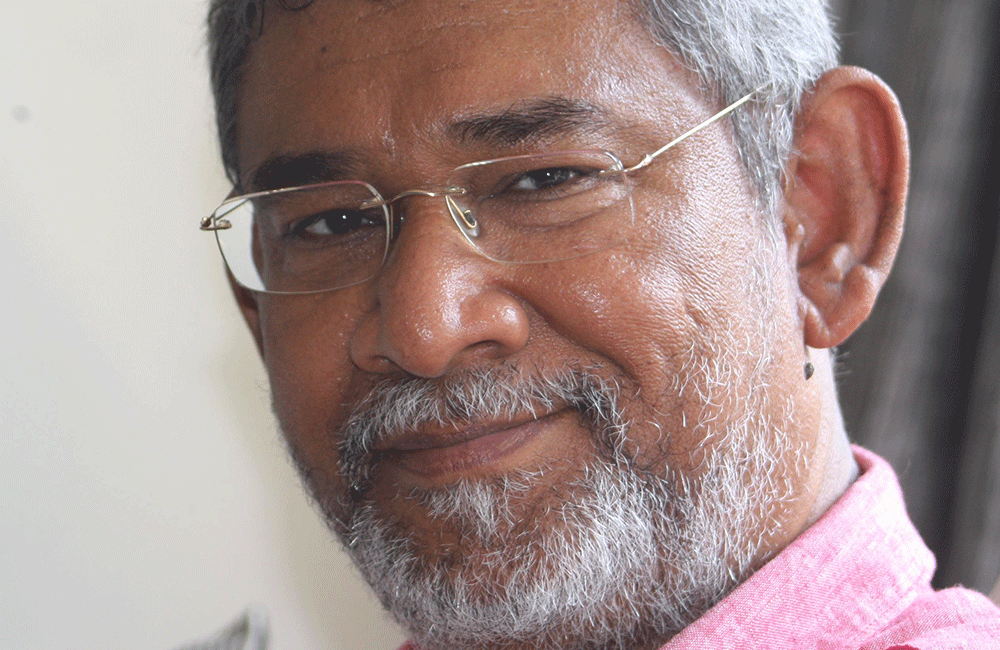 Dr. Dayan Jayathileka
Dr. Dayan Jayathileka
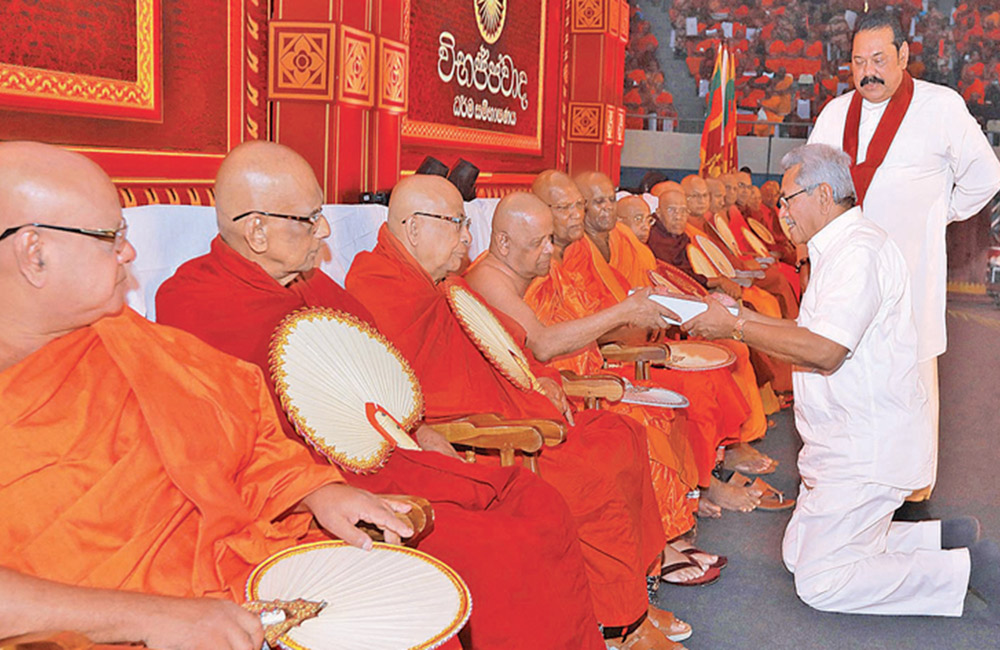
Political parties should seal social contracts before religious leaders & chief justices
Instead, wealth inequality has not improved in the last 5 years and income growth has slowed across the board except for the wealthiest. No matter how much assistance the government gives, there will always remain a segment of the population that cannot catch up. This is when social expenditure of the government must increase.
These ideals echo the aspirations of our early leaders who enshrined the values in the pledge all Singaporean students recite by heart daily. These are also the values encapsulated in the Sustainable Development Goals (SDGs) which the United Nations’ General Assembly, which Singapore is a part of, has agreed to support.
We urge the government this national day to help citizens overcome various injustices, whether economic, social, political or cultural and truly realize the values in our national pledge”.
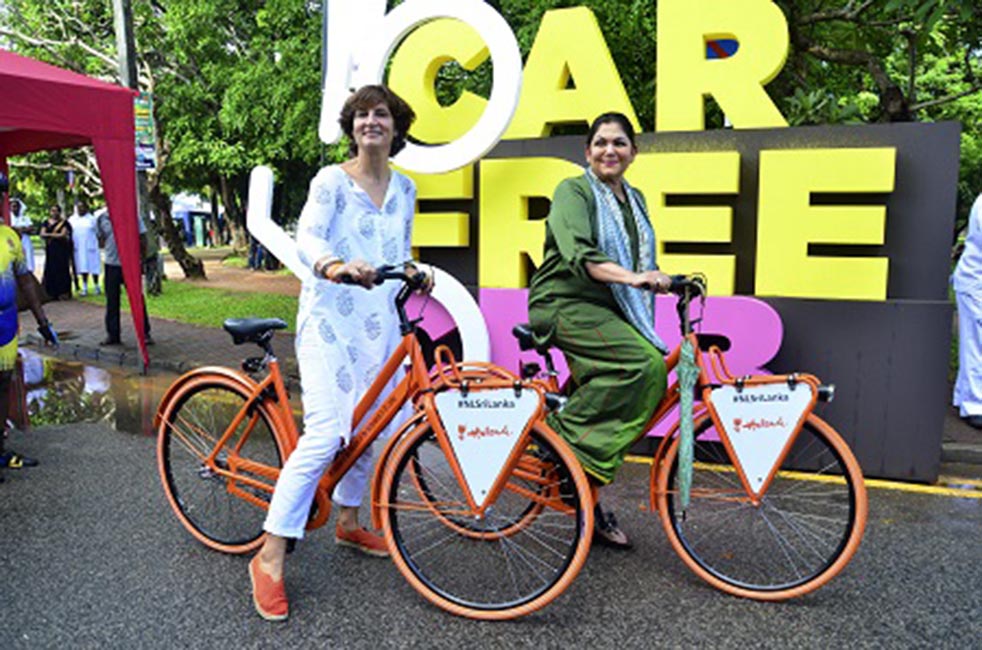
When a Diplomat and 'once a Diplomat' cycle to nowhere
The Dutch are obsessed with cycles. The Ambassadress for Netherlands in Sri Lanka, Her Excellency Ms. Joanne Doornewaard, no doubt is too. She therefore proposed “cycling around” instead of “driving around”. Ms. Doornewaard with the Colombo Municipal Council Mayoress, launched the first ever project they called “CarFreeCMB”, for six hours in Colombo city on anything that is not motorised. “Car free Colombo” was Sunday 14 July, when Ambassadress Doornewaard and Mayoress of Colombo city, onetime diplomat Rosy Senanayake got on cycles and were given publicity in mainstream and social media.
What were they out to achieve? From what they told media, they intend reducing public dependency on motor vehicles and promote a healthier and more sustainable urban lifestyle. They called people to come play on the streets, roller skate, walk and do anything other than run on vehicles. This was announced as a “pilot effort” initially tried out once every month. The launch was not about reducing use of motor vehicles at least during the 06 hours announced. Vehicles were re-routed instead, by closing a few kilometres of city roads. Also, except for a media briefing, there was no campaign in creating awareness on why motor vehicle use should be substituted by cycle use. Most importantly, there was no stress and importance given to city air pollution and major traffic issues that has other reasons, why increasing numbers of private vehicles are on the streets.
Netherlands had a tradition of using cycles pre WW II. They gave up on that after WW II. Present Netherlands became a “cycling nation” once again through sheer public agitations in the 70’s. In the 50s and in the 60s with a steep rise in private vehicle use, Netherlands experienced an increasing number of road deaths that shook them as a society. In 1971, Netherlands experienced over 3,000 road deaths that included 450 children. In response, the “Stop de Kindermoord” (Stop Child Murder) public campaign that emerged, grew into a strong civil movement demanding safer cycling paths for children that changed the entire landscape of public commuting. The 1973 petroleum crisis also played a motivator and helped the shift to cycle use.
We have far more serious crises at hand, but don’t have such social outcry. The CEA official website says, “Annual averages of ambient PM10 level in Colombo over the years have remained relatively within the 60 to 82 µg/m3 range with a slight decreasing trend from 1998 to 2011.. ……These values, however, consistently exceeded WHO latest guideline value of 50 µg/m3 for PM-10. Thus Colombo city is very unhealthy in terms of its particulate pollution.” The same source says, “Regulations for vehicle horn noise control was gazetted (no details though) and vehicle horn noise testing program was implemented to aware and control noise pollution caused by vehicles.” (accessed on 17 July 2019). On police records, last year alone, 3,164 deaths had occurred on Sri Lankan roads.
The “car free Colombo” campaign, did not bring any of those major issues into focus. This “cycle campaign” therefore was seen as and is, an urban middleclass “health exercise” and nothing more. As Mayoress of Colombo, if Rosie Senanayake is serious about reducing vehicular volume on its roads, “CarFreeCMB” is not the campaign slogan to use. Nor is closing roads once a month for cycling going to be anything serious. A more practical theme would be “CycleToSchool”. All government schools from 1962 admit children to “Year One” on the distance to school from “home” that initially was a maximum of 02 miles. For all popular and leading schools in Colombo, that distance came to be reduced over the decades due to the crazy scramble for admission. Distance to them now is less than 01 km. One km is a distance all children can even walk to school and back. With over 55,000 students in the 10 leading public schools alone within Colombo city, campaigning for “CycleToSchool”, should technically stop school vans and buses and even cars that transport children to school.
Yet in Colombo, that would be one of the hardest tasks ever to achieve. It has other dynamics at play. Nevertheless, the campaign “CycleToSchool” if launched, would expose one of the biggest scams in this country, Rosie Senanayake could take pride in exposing as the City Mayoress. Almost 90 percent of the “Year One” admissions are on “false documents” obtained through official channels to prove “false residency” as permanent. That remains the reason for school vans, school buses and cars to operate from as far as Aluthgama, Eheliyagoda, Gampaha and Negambo. A phased out “CycleToSchool” campaign to remove long distance school transport stand valid in answering the major traffic issue in Colombo and air and noise pollution as well.
PIC
Cycling as a mode of transport can only be introduced as part of a “public commuting” programme in the City. As Mayoress responsible for convenient commuting in her city, she has every right to take over “city commuting” under the Colombo Municipal Council (CMC). She could revive the “Tram car” or the “Trolley bus” service the CMC owned from 1944 and ran till M.H. Mohamed as UNP Mayor scrapped the service in 1965 instead of settling the Trolley bus workers’ strike. Bonus in having a fast moving, Tram car or Trolley bus service in the city is, they are “Carbon free”, running on electricity and is “green commuting”.
Sri Lanka’s eternal city traffic jams and increasing hazardous air and noise pollution has many vested interests and many unnecessary factors accommodated. There is no stopping people buying their own 02 wheel or 04 wheel private vehicle, in a society the governments ignore the responsibility of establishing an efficient, comfortable and an affordable public transport system. In that context vehicle buying is very much accelerated in a free market economy which promotes selling of any commodity with leasing and part payments; everything from a mobile phone to a high-powered super luxury four-wheeler. For governments in search of revenue, allowing unrestricted import of vehicles provide a source of steady revenue that in 2017 had been Rs.230,000 million (IRD Performance Report 2017) plus around Rs. 290 million from licenses issued by the Import and Export Control Department, for import of vehicles. There is more revenue at the RMV Department as well as with the “Carbon” tax added to the previous “emission tax”. The simple logic is, more vehicles on roads, more revenue for poverty struck governments. For politicians in power, adjustments to taxes and duties levied, often provide many untold and unspoken of privileges and profits.
Numbers say it all. In 2017 from new registration of 451,653 vehicles, around 50 percent were motor bicycles, around 15,000 were 3Ws, while the rest were all 04 wheelers. That works out to about 208,000 4W vehicles imported in 2017. Leaving a margin of about 10 percent for public and agricultural purposes, new private vehicles registered in 2017 total to about 190,000 vehicles. (calculated from RMV data)
It is a vicious cycle. More vehicles on roads for government revenue in turn increase import of fuel. That adds to city pollution as return. Once again, in a free market economy dominated by the “filthy rich”, fuel import is an extremely profitable business for middlemen. In 2014 Sri Lanka imported 36,480 crude oil barrels per day and was the 58 largest crude oil importer in the world, that year. The cost was 2.1 million US dollars per day (The World Factbook). Despite fluctuation of prices in the global oil market, the total burden on the national economy would not have had any worthwhile difference, in reducing the burden.
In terms of the burden People have to bear, in 2017, total revenue from “exports” was 17 billion US dollars (SLCB). That reads as 46.6 million US dollars a day. On a very conservative calculation, if the c.i.f value of importing a vehicle is left at 18,000 US dollars at an average, the total cost on private vehicle imports in 2017 would have been around 9.6 million US dollars a day. This proves, out of 46.6 million US dollar income per day, we are spending 11.7 US dollars a day for import of vehicles and fuel only. This chaos is in the increase. Currently Sri Lanka has a total of 6.6 million vehicles including 3.5 million motor bikes on the roads. Obviously, it is waste of fuel and productive time of People in disgusting traffic jams, morning and evening.
Yet Sri Lanka is one among the “eternally developing” countries that pays no attention to efficient, comfortable and affordable public transport as a profitable way out of this nightmare on city roads. The whole focus is on widening roads, construction of overhead bridges and adding “highways” with speed limits. Lately with the Megapolis urban transport project, the “light rails” are also on board at an unbelievably high cost. Within this awfully filthy, free market economy, every heavy construction related project with mega budgets are loaded as solutions to problems. That’s where the money is for everyone involved in numerous ways.
To get out of this dirty mess, Colombo “ratepayers” should demand for a “Carbon free” city with an efficient, comfortable and an affordable inter city public commuting service. Before cycles are brought in, Sri Lanka should replicate the Dutch slogan “Stop de Kindermoord” (Stop Child Murder) with our own “Stop killing our time” slogan. Demand for a decent public commuting service the CMC and the government are both responsible for.
Kusal Perera
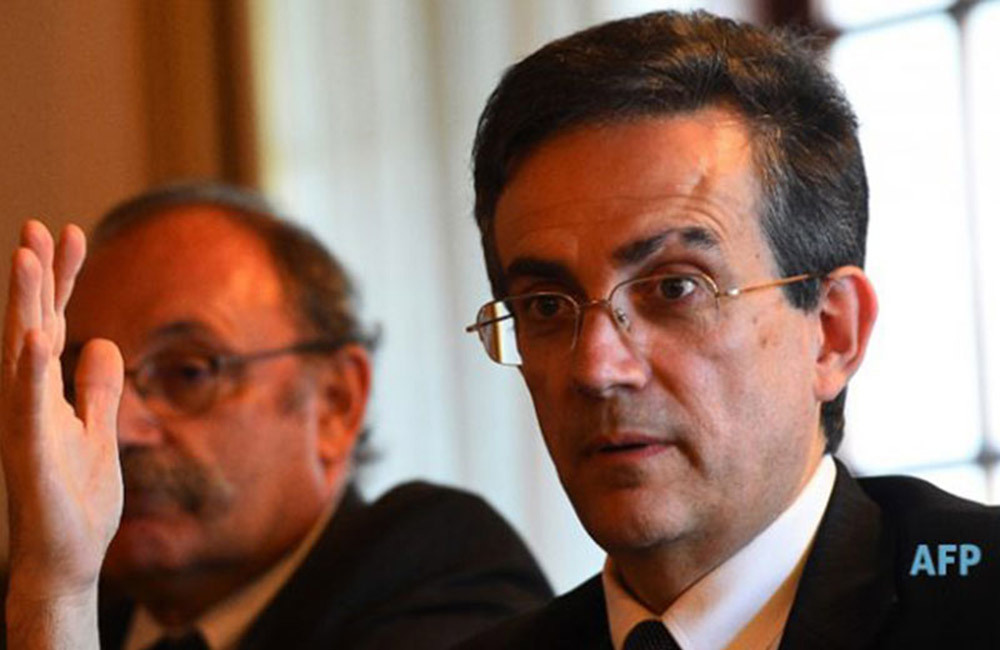
UNHRC session crucial for Sri Lanka's reconciliation
The 43rd session of the United Nations Human Rights Council (UNHRC), which runs until March 20, will be crucial for Sri Lanka as the government has decided to withdraw co-sponsorship of resolutions 30/1, 34/1 and 40/1 under which the government undertook accountability and reconciliation after the civil war ended in May 2009.
In her statement to the UNHRC, High Commissioner Michelle Bachelet conceded that while some progress has been made in promoting reconciliation, accountability and human rights, she was concerned about the inability of the government to deal with impunity and to reform institutions, which may trigger a recurrence of rights violations.
She urged the UNHRC to closely monitor developments in Sri Lanka and called for full implementation of the resolutions.
Meanwhile, the government of Sri Lanka on Feb. 20, while withdrawing co-sponsorship of resolution 30/1, pledged to continue to work with the UN and seek capacity building and technical assistance in keeping with domestic priorities and policies. It also announced its intention to work toward closure of the resolution in cooperation with the UN.
Sri Lanka has until March 2021 to implement its commitments to the UNHRC, especially regarding the creation of a war crimes investigation panel.
Let us review the period of the previous unity government from Oct. 1, 2015, up to the appointment of a new government on Nov. 16, 2019.
As Bachelet made clear to the UNHRC, some progress has been made in promoting reconciliation and accountability and human rights in line with the co-sponsored resolution.
A step in the right direction and one that was absolutely essential for the accountability process was the creation of the Office of the Missing Persons as well as the Office for Reparations.
“The commitments made by the previous government had contributed to the lapses that resulted in the Easter Sunday attacks in April 2019,” the government stated while declaring the unilateral decision to withdraw from co-sponsorship of the resolution.
A Commission for Truth, Justice, Reconciliation and Non-Recurrence was not established, though the government agreed to formulate mechanisms under the provisions of the constitution without the participation of international judges and proposed hybrid special courts. These were not established during the period of the unity government as the then prime minister and president were acting against each other in an ugly power consolidation process.
As promised, the reform agenda, the new charter, reforming the electoral process and solving the national question of federalism versus autonomy were not resolved.
Though they promised to abolish the executive presidency as well as set up of independent commissions, only the 19th amendment of the charter was passed by parliament on April 28, 2015 by an overwhelming majority of 215 votes. This paved the way to reducing the powers of the executive presidency and strengthen parliament and must rank among the success stories.
Reformist agenda
The impact of the 19th amendment has had on Sri Lankan society is enormous and self-evident. The civil service, police and judiciary are independently exercising their powers with renewed vigor due to the enabling situation created by constitutional reforms.
President Maithripala Sirisena in October 2018 sacked Prime Minister Ranil Wickramasinghe and appointed Mahinda Rajapaksa and dissolved parliament. However, due to the powers granted by 19th amendment, the judiciary declared these moves illegal and reinstated Wickremasinghe. That is how the reformist agenda was carried out during the previous regime.
It is interesting to know how the question of accountability came to the fore. When the conflict finally ended in 2009, President Rajapaksa met with UN secretary-general Ban Ki-moon and agreed to an accountability probe. But Rajapaksa did not listen to the international community’s call for wartime accountability until he was defeated in January 2015.
The change of government averted possible international sanctions over Rajapaksa’s failure to adequately deal with war crimes. Some claim that up to 40,000 Tamils were killed in the final months of the civil war.
Meanwhile, the Sri Lankan delegation to UNHRC meeting in Geneva left on Feb. 25. Foreign Minister Dinesh Gunawardena officially informed the council on Feb. 26 of the government’s decision to withdraw from co-sponsorship of resolutions 30/1, 34/1 and 40/1.
“Procedurally, in co-sponsoring resolution 30/1, the previous government violated all democratic principles of governance and the resolution seeks to cast upon Sri Lanka obligations that cannot be carried out within its constitutional framework and it infringes the sovereignty of the people of Sri Lanka and violates the basic structure of the constitution and that is why Sri Lanka was prompted to reconsider its position on co-sponsorship.”
The Sri Lankan government has six months to devise new strategies before the rights body meets in September.

The Tamil minority is uneasy with the situation created by withdrawing co-sponsorship of the resolution calling for an investigation into alleged rights violations committed during the long civil war. Civil society organizations and religious leaders should address these issues as soon as possible.
Though the government has withdrawn co-sponsorship of the resolution, it is effective until March 2021. The government will have to face the UNHRC again in September. If the obligations set by the rights body are not fulfilled, an embargo could ensue.
“Domestic processes have consistently failed to deliver accountability in the past and I am not convinced the appointment of another Commission of Inquiry will advance this agenda. As a result, victims remain denied justice and Sri Lankans from all communities have no guarantee that past patterns of human rights violations will not recur,” Bachelet said in her address to the UNHRC on Feb. 27.
The reaction of the international community will become known to the public during the coming days of the UNHRC meeting.
As the government has asked the council to announce its intention to work toward closure of the resolution, one wonders whether there will be any accountability and reconciliation process in the future.
Kingsley Karunaratne is administrative secretary of the Rule of Law Forum, which is affiliated to the Asian Human Rights Commission. His organization works for fundamental redesigning of justice institutions to protect and promote human rights. The views expressed in this article are those of the author.

Open challenge to all aspiring presidential candidates
There are many who aspire to be the next President in a few more months. While main political parties are desperate in deciding who their presidential candidate should be and in what political alliance if any, there are also individuals staking a claim for the presidency from a distance. They all claim they have the magic answer to solve all problems.
While talking about all problems and solutions to them, I personally believe our education system needs urgent and serious attention. It is education that produces persons for every slot in the State from policymaking to implementation. Education produces politicians too.
It is education that produces personnel for national security, law enforcement and the judiciary also. All that is in dire straits. Our education system has only produced, and still keep producing, total misfits to all systems.
This education system also nurtures Sinhala Majoritarianism that results in this heavily polarised racist society.
Wonder how many of those who aspire to be the next President, know this. A complete breakdown in education is there at every level from pre-school to university and tertiary education.
This includes syllabi, curricula, textbooks, teaching quality and competence, school facilities, administration and policymaking. They have major disparities, inequalities and lapses in day to day school life, that makes Free Education a complete farce. It is school education that qualifies and promotes students for higher and university education. This school education obviously cannot produce good intakes for higher and university education.
There are 10,194 government schools on the whole island with 4.1 million students and a tutorial staff of 241,591 teachers. Of all schools, only 1,029 schools (1AB) have Science and Maths for A/L students. There are also 1,818 schools (1C) with Arts and Commerce streams for A/L students. Of the balance number, there are 3,288 schools (Type 2) with classes up to Year 11, which is up to the O/L examination.
Going into more details show how the whole concept of Free Education in Kannangara Reforms has been completely miscarried by now. Kannangara Reforms accepted every child’s right to education and proposed reforms to ensure “equal opportunities” within a “national education” system.
They focused on common facilities to all rural and urban children. It is important to note that Kannangara Reforms never opposed private and fee levying schools. Kannangara Reforms instead brought them into the “national education system” with the State taking over conducting of “national examinations”.
Within the national education system, the State was brought into level the playing field, to support parents who could not afford their children the same opportunities the affluent parents could afford. That makes taxpayer money important in national education and hold governments responsible for a quality education system for all children. Kannangara Reforms came into effect from 1947.
Central Colleges with good facilities including hostels were established in most rural districts. They supported a quality improvement in provincial education. Yet, the Kannangara Reforms were not carried through as expected and planned. Therefore, even in the decades of 50s and 60s, there remained serious disparities and anomalies within the school system.
The most serious reforms since independence were introduced in 1972 as the New Education System that was no answer in improving the quality of school education, nor in levelling the playing field for equal opportunities and facilities.
With the open and free-market economy introduced in 1977, during the past 40 years, education became a profitable sector for investments, while Governments relaxed on their responsibility of maintaining and improving school education. A parallel private-sector education thus emerged and dominates urban life. The free market economy being strictly a city-based market economy, rural schools were treated as mere political footholds for votes.
With that, for the benefit of all aspirants for the presidency, it is worth glancing through data on schools to understand how opportunities and facilities in schools have been glossed over in creating a gapping disparity for the disadvantage of the larger majority while education slipped into major chaos.
There are 1,486 schools with less than 50 students. There are other 1,560 schools with over 50 but less than 100 students. It means out of 10,194 schools, there are 3,046 schools with less than 100 students. They are all “Type 3” schools with classes up to year 05 or year 08 only. The question is, what facilities and opportunities do children in these 3,046 schools have? These certainly are wholly neglected schools.
This lot also need serious attention. There are 54 schools with only a single teacher. There are 97 schools with only 02 teachers. There are also 2,979 schools with less than 09 teachers. They add up to 3,130 schools with less than 09 teachers. What type of schools could they be? What education would children have in these 3,130 schools with inadequate teachers?
Note this yawning disparity too. There are 3,262 schools with classes up to year 11. Students in these schools who qualify for A/L studies, have to find another school for their A/L studies. If some of these students wish to pursue Science or Maths for A/L, there are only 1,029 schools scattered across the country. Of them, Western Province has 201 (Kalutara nevertheless is disadvantaged), while whole Eastern Province has only 99, North Central has 64 and Uva only 83. Not that other provinces are far better.
How many of those students in those provinces who wish to pursue Science and Maths studies for A/L would be able to find a “Type 1AB” school within the travelling distance? Public commuting is as bad as any other service and daily travelling is a hassle and time-consuming. The cost parents will have to bear, is another major issue. Some, therefore, end up in a school with Arts or Commerce that is reachable and affordable. Some give up higher education altogether. Are there equal opportunities and equal facilities in this free education system? Is it fair by all students?
"That in no way answers the major issues in the school system. Numbers above reveal a crumbling school system without basic needs; water, toilets and teachers."
It is far worse and certainly uncivilised too to have schools with no acceptable source of drinking water and schools without any water source. The Western Province has only 54 percent of schools with pipe-borne water supplied by Local Government bodies. 40 percent of the schools use an open well or a tube-well in the school premises. Northern Province has only 12 percent of schools with pipe-borne water from an Local Government body. 73 percent use open wells/tube wells, 05 percent are served by bowsers and 10 percent have no water. 25 percent of the schools in North-Western (Wayamba) Province have no water. In Uva Province, it is 26 percent, while 21 percent depend on streams/springs. In the North-Central Province, 21 percent have no water. In the Central Province, 23 percent have no water while 20 percent depend on streams/springs. In the Sabaragamuwa Province, 19 percent have no water and 20 percent depend on streams/springs In the Eastern Province, 13 percent have no water.
No water means, no toilets and latrines. What does that in reality mean? Schools that depend on streams/springs and open wells also would not have proper and decent toilets and latrines.
Thus, the number of schools without proper drinking water, toilets and latrines would be more than 20 percent at a minimum. That comes to 2,038 schools in the country. Yet the national figure 16 percent is only about schools with “no water” anyway. In actual terms schools without drinking water and without toilets should be much above the conservative calculation of 20 percent. What a yawning gap is between proposed Tabs and Toilets!
From 2017 the UNP government and its Education Minister kept proposing Tabs to schools with A/L classes that total 2,847. It was dragged on, with numerous allegations on their procuring. Last week at the cabinet meeting, President Sirisena is said to have reduced it to 353 national schools as a pilot project.
That in no way answers the major issues in the school system. Numbers above reveal a crumbling school system without basic needs; water, toilets and teachers.
The most honourable objective of Kannangara Reforms to ensure “right to education” to all children with common facilities and equal opportunities has turned out a dead project over the past decades. It has left an ailing and partly dysfunctional school system for the majority and a privately funded functional education network for the affluent urbans.
We need to have answers to all issues these numbers spell out (All stats and data – School Census Report 2017 / Ministry of Education). We need an education system that would positively contribute to the future of this country and produce as Kannangara Reforms said, citizens who would accept the diverse culture in society and work for the “common future” of the country. We need to have quality education on level ground from Kolombuthurai to Colombo city.
What “reforms” would the aspiring presidential candidates offer in solving these yawning disparities among schools? What “reforms” do they propose to ensure “right to education” for all children with equal opportunities and good quality facilities? To all 4.1 million children in school now and for new entrants in the
Will these aspiring candidates who believe they could as President-elect solve all problems, tell us how they plan to reform education worth the taxpayers’ money? Or do they have any? Waiting for answers, please.
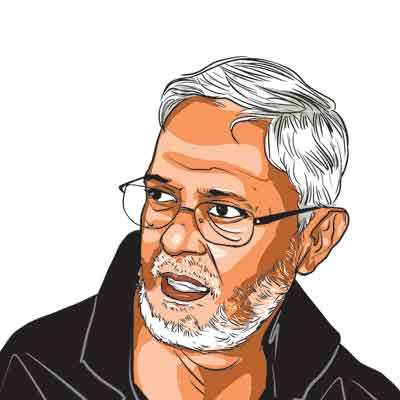 Kusal Perera
Kusal Perera
Page 4 of 12
